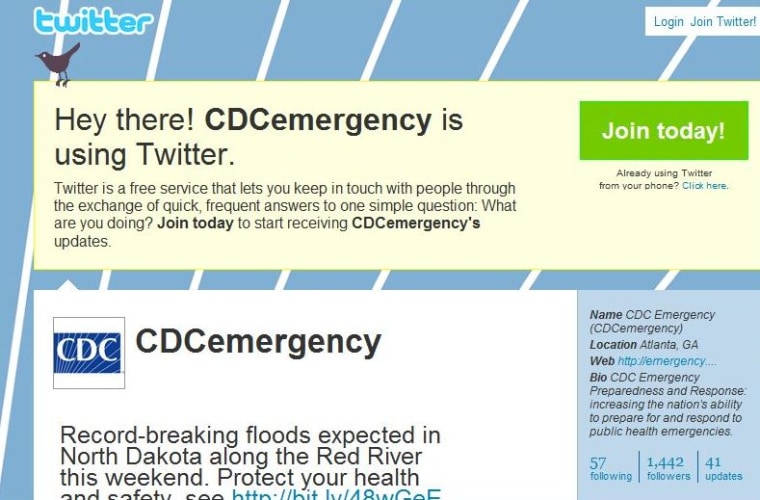The federal government, keeping in line with President Barack Obama’s directive for a more “transparent" and open government, will soon be a staple on YouTube, Flickr, Vimeo and blip.tv, with similar plans in the works for social networking sites Facebook, MySpace and Ning.com, officials said Wednesday.
“We know that about every minute, 15 hours of video is uploaded to YouTube, and there’s about 50 million people that use Facebook,” said Martha Dorris, associate administrator of the General Services Administration's Office of Citizen Services and Communications. “That’s where the public is going to get their information, and they don’t necessarily always go to government Web sites.”
The timing of the announcement coincides with Thursday's first White House online town hall about the economy, where the president will answer some questions from the public, and the event will be streamed live on WhiteHouse.gov.
Obama, the nation's first truly high-tech president, who considers his BlackBerry smartphone almost as vital as air, issued a directive Jan. 21 calling on federal officials to create "an unprecedented level of openness in government."
That includes, he said, harnessing "new technologies to put information about (federal officials') operations and decisions online and readily available to the public."
The GSA and other federal agencies have been negotiating with YouTube, Flickr, Vimeo and blip.tv for the past nine months, said Teresa Nasif, deputy associate administrator of the Office of Citizen Services and Communications.
Next on the agenda will be seeking agreements with social networking sites Facebook, MySpace and Ning, she said.
"We're exploring any avenue that we think is a valid way to convey government information to the public, and those are the sites that the public seem to be flockiing to," Nasif said.
Federal agencies already use Twitter, the short-messaging service that lets users post up to 140 words at a time, said Dorris, and have already been doing "some great experimenting," said Sheila Campbell, co-chairman of the Federal Web Managers Council.
"For example, the Social Security Administration has some great videos to show people whether they're eligible for benefits. The Environmental Protection Agency has some great timber-related videos to help people understand what they can do to help save the environment."
The Centers for Disease Control recently used Twitter and Facebook "to get the word out" about the peanut butter recall earlier this month, Campbell said. Another example: The agency also posted information on Twitter about "a cool new video about HIV risk in African American men on the CDC YouTube page."
The Library of Congress has been using photo-sharing site Flickr "to share their vast holdings of photos, because they realize that not everyone is going to go to the Library of Congress Web site, but millions of people are going to Flickr," she said.
All of the video and photo information that will be shared on social networking sites will be "repurposed," data that's already available on existing government Web sites, said Campbell.
Yet there will also be the opportunity for public discourse with government agencies, akin to some of the blogs already used by various departments, she said.
"The Transportation Safety Administration blog has been up for quite some time," she said. "They're using a social media tool to create of a community of people passionate about airport security."
It's a valuable process, she said, because public officials are "reading those comments," and making decisions to look into or change policies based on them.
Information shared on the social networking sites will be maintained and preserved in accordance with federal Freedom of Information Act requirements, said Mike Ettner, attorney with the GSA's Office of General Counsel.
Staffing and monitoring the public comments could be more of a worry, in terms of the time required to do so.
"A lot of agencies are looking at how they can realign their resources" to take on the task, said Campbell. Everyone is "trying to collaborate because every agency is going to face dealing with citizen input and participation."
The government had to negotiate with YouTube, Flickr, Vimeo and blip.tv to amend standard Terms of Service agreements regarding Web site use and disputes, said Ettner. For example, the Terms of Service agreements typically call for any disputes between the site and content provider to be resolved by state court in California. Federal, not state, law would prevail, said Ettner, making that clause unacceptable.
The sites will be charging the government, Ettner said. "These are no-cost agreements for the standard hosting service that these providers provide," he said.
